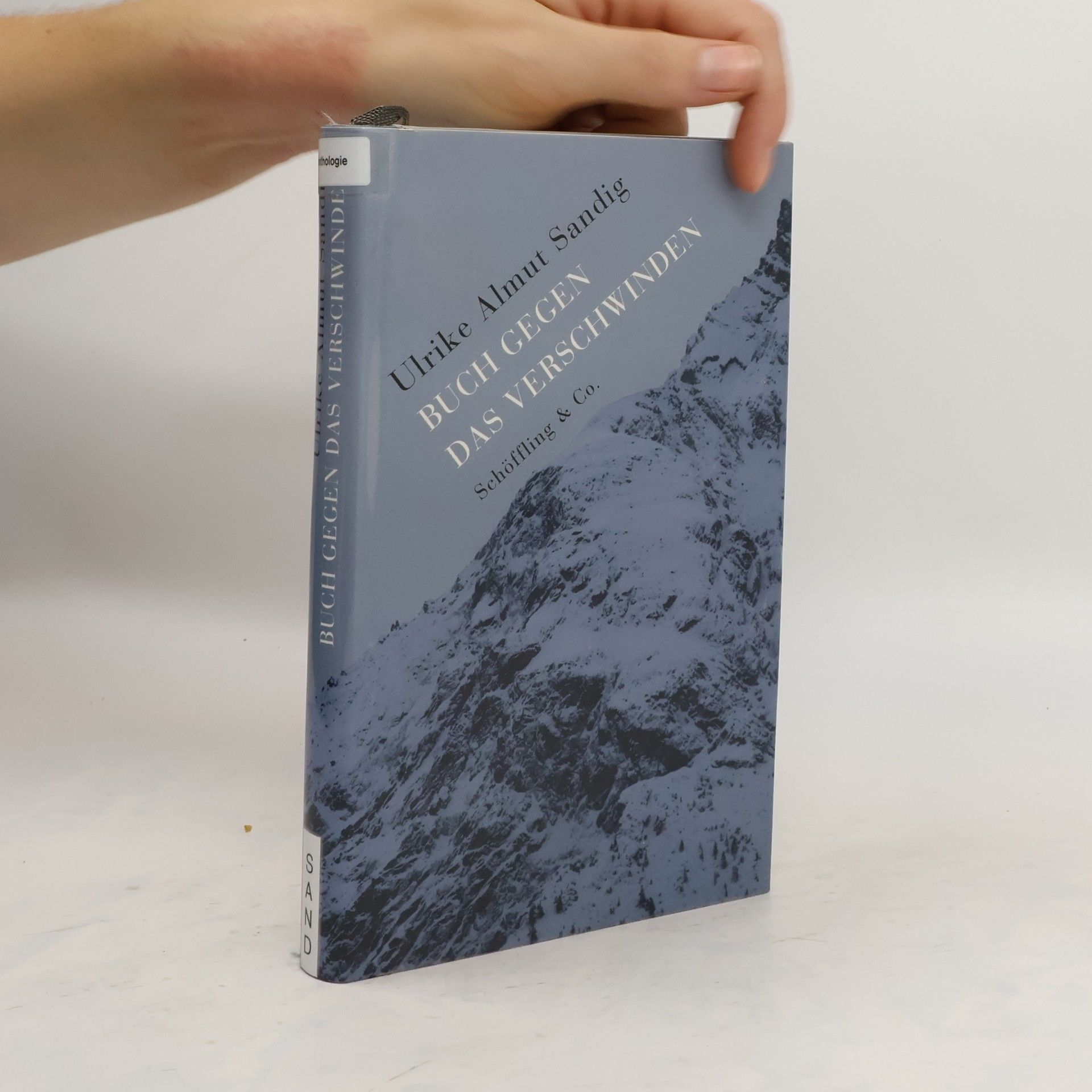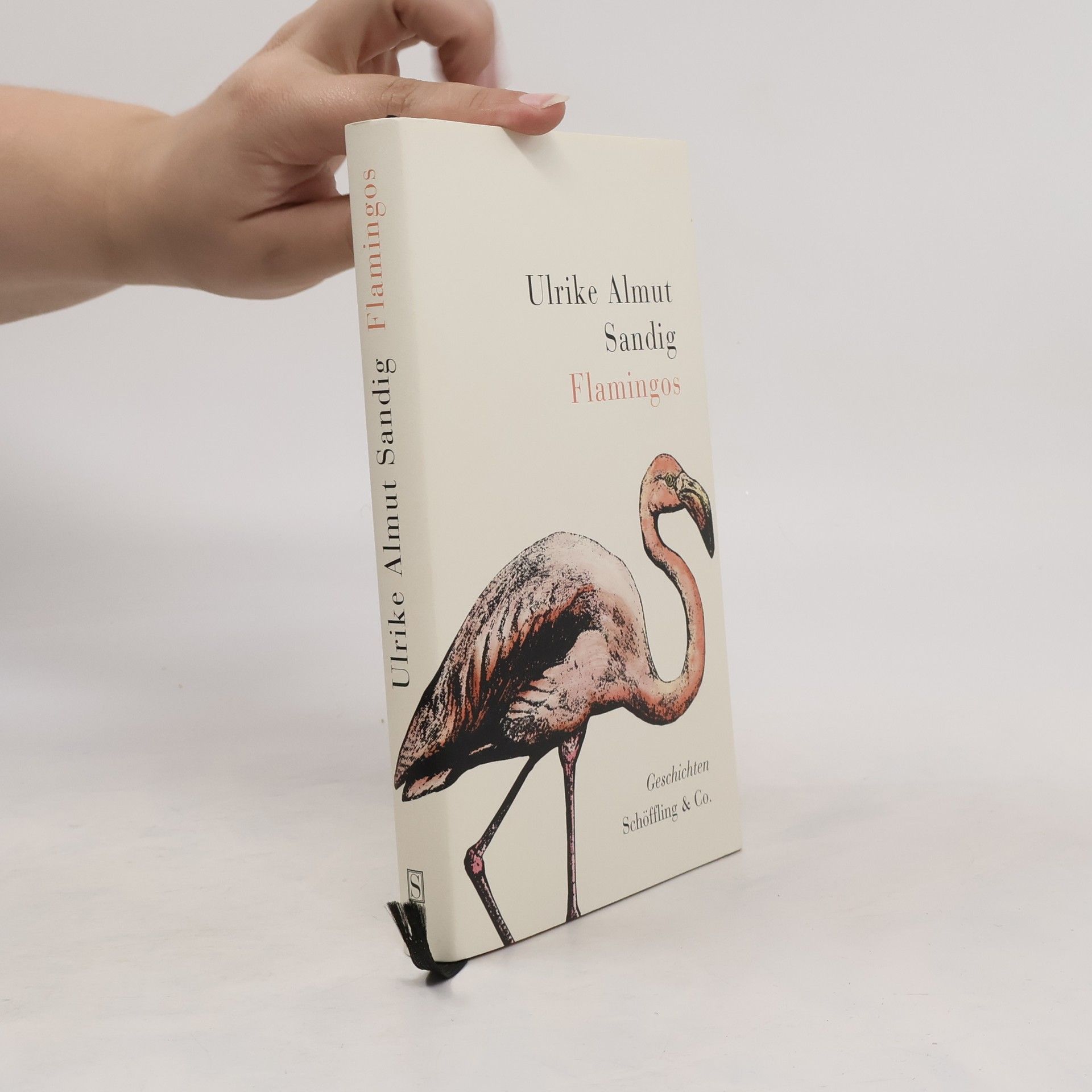A novel of two young friends growing up on divergent paths in the last days of Communist East Germany. What is it like to be young and broken in a country that is at the brink of collapse? This is what acclaimed poet and sound artist Ulrike Almut Sandig shows us in her debut novel, through the story of old friends Ruth and Viktor in the last days of Communist East Germany. The two central characters are inseparable since kindergarten, but they are forced to go their different ways to escape their difficult childhood: Ruth into music and the life of a professional musician; Viktor into violence and a neo-Nazi gang. Monsters Like Us is a story of families, a story of abuse, a story about the search for redemption and the ways it takes shape over generations. More than anything, it is about the stories we tell ourselves about who we are, and who we want to be. Bold, brutal, and lyrical, this is a coming-of-age novel that charts the hidden violence of the world we live in today.
Ulrike Almut Sandig Livres






"we find ourselves deep in the future of fairy tale. we are the offspring of our own imaginings." Ulrike Almut Sandig's second volume of poems to be translated into English is a journey through a world that is imaginary yet entirely recognizable. Precise observation of the concrete is mixed with playful humor, inspired musicality, and an anxious reckoning with undercurrents of violence. Borrowing from the Brothers Grimm, the collection explores the darker side of their fairy tales as a backdrop for very contemporary concerns: Migration, war, the rise of the new right, ecological threat, information overload, and political apathy. At the same time, Sandig plays with the German meaning of the word "Grimm": rage. That emotion permeates the collection as a reaction to the darkness in the collective German consciousness. Yet the book is also animated by the passionate, expansive empathy--and reminds us what it is to be human. Always inventive, Sandig teases us here with multiple versions of the self, and multiple voices all in search of the origins of poetry in hidden places: in the silence before language, in the wings, in the field of rapeseed deep in the snow.
A collection of vital, melancholic, elemental, and vibrantly contemporary poems. In the beginning, was the light, or was it the Lumières? In Ulrike Almut Sandig's latest volume of poetry, it is only a leap from the creation of the world to the symphony of the Berlin metropolis. And there is a question holding out off the coast of Lampedusa: Can shining sheep be used as night storage for the dark hours, when we are overwhelmed with fears of God, of a gym teacher with a whistle, of mothers with eyes as black as coal? In devastating sequences, Sandig charts the reality of an abused child, victims of contemporary war, or a fourteenth-century Madonna. Full of humor, musicality, lightness, and rage, Shining Sheep is not just visual poetry--it has loops in your ear and filmic explosions of imagery for all your senses.
Thick of It
- 96pages
- 4 heures de lecture
The poems of Ulrike Almut Sandig are at once simple and fantastic. This new collection finds her on her way to imaginary territories. Thick of It charts a journey through two hemispheres to "the center of the world" and navigates a "thicket" that is at once the world, the psyche, and language itself. The poems explore an urgently urban reality, but that reality is interwoven with references to nightmares, the Bible, fairy tales, and nursery rhymes--all overlaid with a finely tuned longing for a disappearing world. The old names are forgotten, identities fall away; things disappear from the kitchen; everything is sliding away. Powerful themes emerge, but always mapped onto the local, the fractured individual in "the thick of it" all. This is language at its most crafted and transformative, blisteringly contemporary, but with a kind of austerity, too. By turns comic, ironic, skeptical, nostalgic, these poems are also profoundly musical, exploiting multiple meanings and stretching syntax, so that the audience is constantly kept guessing, surprised by the next turn in the line.
„Streumen ist ein guter Ort, aber der Aufenthaltsort des Glücks liegt von hier aus gesehen immer im Süden.“
„wir befinden uns tief in der Zukunft der Märchen / wir sind die Enkel unserer eigenen Vorstellungskraft.“ Ulrike Almut Sandigs Gedichte sind kunstvolle Ohrwürmer: Angelehnt an die Grimm'schen Märchen, wurzeln sie fest in einer Gegenwart, die sie mit dem Echolot ihrer Verse erfasst. Wie die Fledermaus in einem ihrer Gedichte, die aus dem Laborfenster flog, nachdem man ihr beide Augen ausstach. Mit dem Klangorgan ihrer ganz eigenen Sprache erfasst Ulrike Almut Sandig präzise die Untiefen zeitgeschichtlicher Unheimlichkeit und zeichnet den utopischen Gegenentwurf eines Heimatlandes, in dem der Mensch kein "Vieh ohn' Seele und Fell„ ist, sondern aufrecht sagen kann: “ich bin„. Auch für Ulrike Almut Sandigs neuen Gedichtband gilt: “Diese Gedichte überzeugen durch Sprachwitz, Selbstironie und Humor, philosophische Phantasie und ein emphatisches dichterisches Selbstverständnis.„ (Wulf Segebrecht, Frankfurter Allgemeine Zeitung)“
Von Sprache sprechen IV
Die Thomas-Kling-Poetikdozentur
Ein junger Journalist versucht inmitten der Unruhen um den Istanbuler Gezi-Park die Erwartungen seiner Mutter abzuschütteln, die nach dem Mauerfall 1989 das Reisefieber gepackt hat. Ein Wanderer geht während eines Schneesturms in den uralten verwunschenen Wäldern des Engadin verloren. Ein kleines Mädchen wird zum nächsten Venusdurchgang von der Großmutter ans Ende der Welt geflogen. Wohin ihre Spuren führen, ist eines der vielen Rätsel dieser Geschichten. Ulrike Almut Sandig beschreibt mit ihrer farbigen und poetischen Sprache nur scheinbar vergangene Orte. In Wirklichkeit leben sie in den Biografien der Älteren und den Lebensentwürfen der jungen Generation fort. Beziehungen werden von den Stürmen der Geschichte durchweht und trügerische Gewissheiten geraten ins Wanken. In ihrem neuen Buch bietet Ulrike Almut Sandig den Zauber des Erzählens gegen das Verschwinden ganzer Welten aus dem Bewusstsein auf.
„Begeisterte Reaktionen bei Lesern und Kritikern lösten die Gedichtbücher von Ulrike Almut Sandig aus, und so wird es auch mit ihren Geschichten sein, die nunmehr im Buch Flamingos erscheinen. Es ist nichts weniger als die Stimme einer neuen, ganz außergewöhnlichen Prosaautorin, die in der Welt der Lyrik bereits einen großen Namen besitzt und mit zahlreichen Preisen geehrt wurde, zuletzt 2009 mit dem Leonce-und-Lena-Preis. Ulrike Almut Sandigs Prosa ist so neu, so frisch, so außergewöhnlich und so außergewöhnlich gut. Mit bewundernswerter Sicherheit und Präzision setzt sie auf zweierlei: das Spiel mit der Erinnerung und die Gestaltungskraft der Phantasie, durchaus mit märchenhaften Zügen. Eine großartige neue Stimme, von der wir gewiss in den kommenden Jahren noch sehr viel zu erwarten haben: die Geburt einer Erzählerin.“Flamingos stehen in Gruppen, aber jeder Einzelne ist allein. Sie halten Abstand. Sie sind wachsam. Wir finden sie hässlich. Wir finden sie schön. Sie sehen aus, als würden sie brennen, aber das ist nicht wahr. Sie sehen aus, als wären sie nicht kaputt zu machen, aber auch das ist nicht wahr. Sie erwecken den Anschein, als wären sie gar nicht da. Sie sind aber da. Sie stehen mitten unter uns, und sie sind schwer. Doch auf der Oberfläche der seichten Gewässer laufen sie uns davon. Und dann fliegen sie auf."


